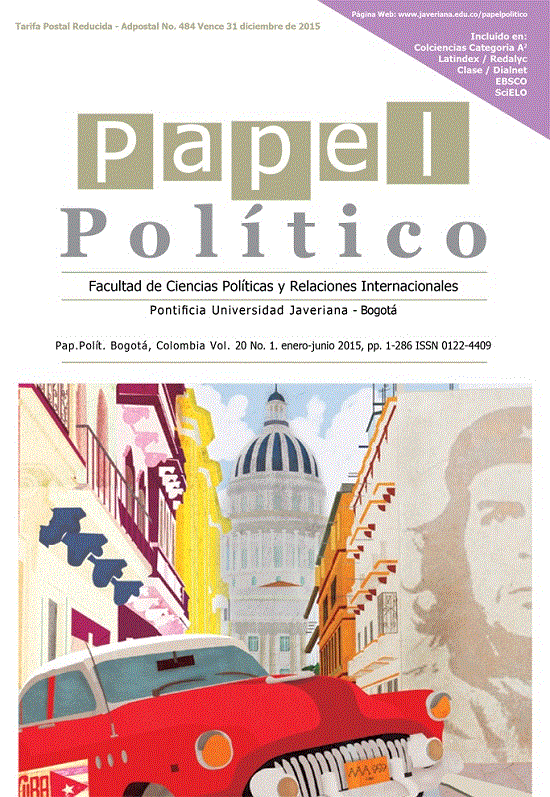Resumo
A través del cumplimiento de sus funciones deacumulación, legitimidad y confianza, la políticafiscal garantiza la reproducción de las relacionessociales capitalistas en un contexto de relativaarmonía social. Este es el caso en Colombia,donde un análisis histórico permitirá identificarla configuración de un Estado bélico-asistencialy de confianza inversionista que, a través dediferentes mecanismos de represión y contenciónsocial garantiza la reproducción del ordenprevaleciente. En este contexto, se afirmará queel origen del déficit fiscal tiene una relación directacon la consolidación del neoliberalismo, lapersistencia del conflicto armado y la expansión del modelo asistencialista de política social.Únicamente transformaciones profundas endichos procesos podrán resolver los problemaspresupuestales que ha enfrentado el gobiernodespués de 1990.Esta revista científica se encuentra registrada bajo la licencia Creative Commons Reconocimiento 4.0 Internacional. Por lo tanto, esta obra se puede reproducir, distribuir y comunicar públicamente en formato digital, siempre que se reconozca el nombre de los autores y a la Pontificia Universidad Javeriana. Se permite citar, adaptar, transformar, autoarchivar, republicar y crear a partir del material, para cualquier finalidad (incluso comercial), siempre que se reconozca adecuadamente la autoría, se proporcione un enlace a la obra original y se indique si se han realizado cambios. La Pontificia Universidad Javeriana no retiene los derechos sobre las obras publicadas y los contenidos son responsabilidad exclusiva de los autores, quienes conservan sus derechos morales, intelectuales, de privacidad y publicidad.
El aval sobre la intervención de la obra (revisión, corrección de estilo, traducción, diagramación) y su posterior divulgación se otorga mediante una licencia de uso y no a través de una cesión de derechos, lo que representa que la revista y la Pontificia Universidad Javeriana se eximen de cualquier responsabilidad que se pueda derivar de una mala práctica ética por parte de los autores. En consecuencia de la protección brindada por la licencia de uso, la revista no se encuentra en la obligación de publicar retractaciones o modificar la información ya publicada, a no ser que la errata surja del proceso de gestión editorial. La publicación de contenidos en esta revista no representa regalías para los contribuyentes.


